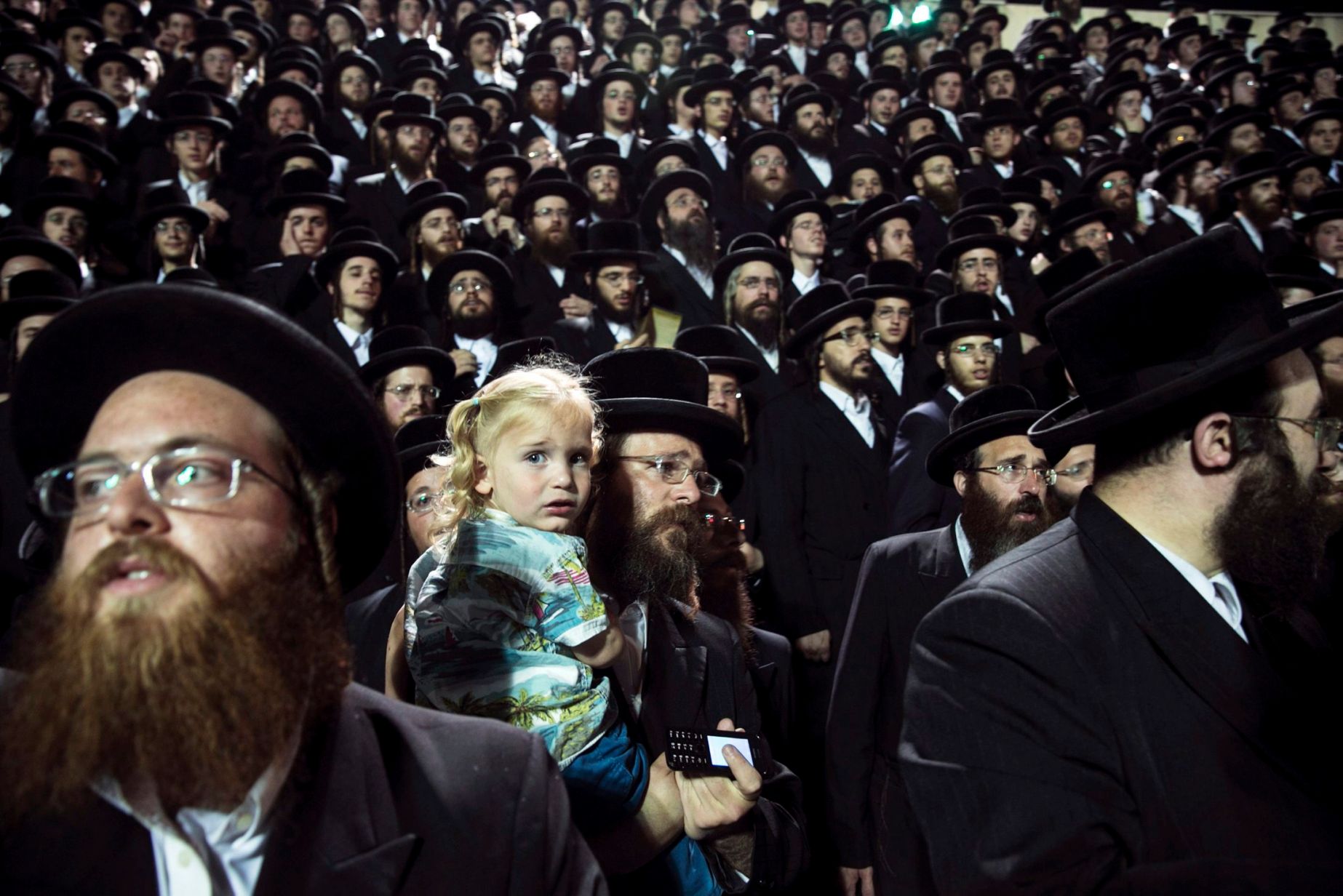 Ultra-Orthodox Jews gather near a bonfire as they celebrate the Jewish holiday of Lag b’Omer in Bnei Brak, Israel, May 6, 2015. (Photo: Reuters)
Ultra-Orthodox Jews gather near a bonfire as they celebrate the Jewish holiday of Lag b’Omer in Bnei Brak, Israel, May 6, 2015. (Photo: Reuters) For the second year in a row, Israelis cannot light a fire on Lag B’Omer. Last year, it was because of the potential for wildfires. This year, it is because of the coronavirus. Just over half the Jews in Israel used to light a bonfire on the eve of the holiday, which begins tonight (May 11).According to a survey by Prof. Cami Fuchs, 51% say they light a bonfire. Secular Israelis as well as ultra-Orthodox Israelis, religious Israelis, traditional Israelis light bonfires on Lag B’Omer. Those who have children send them to a bonfire even when they themselves do not go (63%).
It is worth checking this data again in a year or two to see whether we are witnessing the beginning of the end of the traditional fire. Last year I wrote, “The big heat that has hit Israel this year is a special event. But there seems to be a tendency to tame the bonfire practice that goes beyond it. There is a growing awareness of the damage it causes and an increasing sensitivity to environmental issues. Israel is growing. Lighting a bonfire for 3 million Jews (when I was growing up) is different to lighting a bonfire for 7 million Jews (Israel’s Jewish population is getting there).”
Last year, the chief rabbi said that there was no need to light a fire. That’s easy for him to say. Lighting a bonfire is the main practice of Lag B’Omer. It is therefore appropriate to ask not only whether to light or not to light, but also what will happen in the absence of fires? In other words, will this be the end of Lag B’Omer as a holiday practiced by the majority?
This is not a theoretical question. Other dates on the Jewish calendar were eliminated from the consciousness of most Israelis. Dates such as the 17th of Tammuz (a fast commemorating the breach of the walls of Jerusalem before the destruction of the Temple). Dates remembered and observed exclusively by a minority of religious Israelis. Lag B’Omer might become such day if the bonfire is gone and the only thing that remains from this holiday is the large gathering on Mount Meron.
The coronavirus forced Israel to close the Meron site, but the public will surely return to this site next year. About half a million Israelis travel to Meron every year to the grave of Rabbi Shimon Bar Yochai. But unlike the bonfire, the pilgrimage to Meron (and to other graves of the righteous) is practiced by a specific group. At Mount Meron, you find mostly Haredi Jews who go there to perform the Hallake – a boy’s first haircut (at age 3) – to light fires, to visit the tomb of Bar Yochai. If Lag B’Omer becomes a day practiced solely in Meron, it will lose its appeal for most Jews.
Under the current circumstances, it is hard to see how Israel can uphold this Jewish tradition, which has not always been meticulously observed and was revived by the Zionist movement. Early Zionists put the great rebel Shimon Bar Kochba on a pedestal, and admired his fateful, desperate rebellion against the Romans. Today’s Zionists are more suspicious of Bar Kochba’s zealotry and no longer have a need for his story as a unique example of Jewish heroic militarism. We have our own modern Israeli stories.
A cultural change in Lag B’Omer requires practical thinking. Why have a day off from schools if the kids no longer attend a bonfire at night? Teacher’s unions will certainly not rush to give up on the holiday (and this year Israelis are especially unhappy about that fact because the children are just beginning to return to normalcy). But it must be said, if there are no fires, there is no justification for the day off. And if there’s no day off, there is no holiday. Nothing makes this day a special occasion except traveling to Meron.
Can an old tradition find new content? More than a decade ago, it was decided that this day would be a day of gratitude for Reserve soldiers. Student unions also decided to celebrate Student Day on this date. I am not sure that these decisions will be enough for Lag B’Omer to remain in the minds of most Israelis. But it is a beginning. One thing should be clear: Lag B’Omer cannot be sustained solely by virtue of an old story. To sustain it requires a tradition of doing.
























 More news and opinions than at a Shabbat dinner, right in your inbox.
More news and opinions than at a Shabbat dinner, right in your inbox.